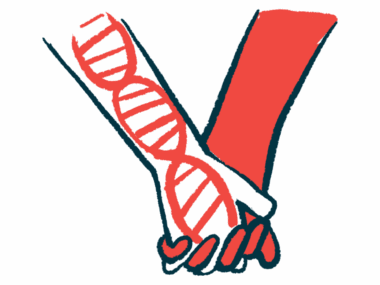RSRT Invests Over $3M in Research Toward Finding a Cure for Rett
Written by |

The Rett Syndrome Research Trust (RSRT) has invested $3.1 million in a slew of research projects as part of its CURE 360 initiative.
CURE 360, which launched last year, aims to help move preclinical advances toward treatments for Rett syndrome — with the ultimate goal of developing a cure for the rare neurodevelopmental disorder that almost exclusively affects girls.
“As the only organization dedicated solely to identifying and accelerating a cure for Rett syndrome, RSRT rigorously evaluates the science and funds comprehensive programs our leading scientific staff and advisors believe can work,” Monica Coenraads, CEO of the U.S.-based Rett Syndrome Research Trust, said in a press release.
For one of the research projects, RSRT is investing more than $1 million into work that seeks to reactivate the MECP2 gene. Rett is mostly caused by mutations in the MECP2 gene, which is located on the sex-determining X chromosome. Females have two copies of the X chromosome and, as such, two copies of MECP2 — but in any given cell, only one of the copies is active, through a process that is essentially random.
The basic aim of this project is to find ways to “turn on” the healthy version of the MECP2 gene when it is inactivated. It is being led by Antonio Bedalov, MD, PhD, of the Fred Hutchinson Cancer Research Institute, in Seattle, and Kyle Fink, PhD, of the University of California, Davis. RSRT is also looking for further ways to expand investment in the treatment strategy of MECP2 reactivation.
Another project, led by Victor Faundez, PhD, of Emory University, was awarded more than $580,000 for work that aims to identify a biomarker of Rett syndrome that can be measured in spinal fluid. Prior work has shown differences in certain molecules in spinal fluid from Rett patients as compared with those without the disease — and similar differences have been seen in animal models. The newly funded work will further test whether these markers change in response to gene replacement therapy, and also will look for associations between these markers and the MECP2 protein.
According to the RSRT, “having biomarkers that correlate with protein levels and disease severity could be a game-changer for designing and interpreting Rett clinical trials and for attracting increased biopharmaceutical interest.”
The tech company Ciitizen was awarded $444,000 in support of a project that will analyze healthcare records and parent-reported data for at least 120 people with Rett syndrome. The aim is to create a digital natural history study for Rett — that is, a description of how the disease tends to manifest that will provide data to will advance research and therapy development.
The RSRT also invested more than $186,000 in a research project led by Joseph Anderson, PhD, of the University of California Davis Medical Center. This project aims to take blood stem cells from Rett mice, put a modified version of the MECP2 gene in them using a specialized viral vector, and then transplant the cells back into the mice. Some of the cells are expected to naturally move to the brain and secrete the modified MECP2 protein to nearby cells. A similar approach has shown promising preclinical data in Angelman syndrome, another neurological disorder with similarities to Rett.
“These exciting research awards would not be possible without our loyal and generous donors, and the affected families that take action and fundraise. I’m profoundly grateful to every one of them,” Coenraads said.
The nonprofit also announced that it is planning to launch a virtual, caregiver-driven registry — the Rett Syndrome Global Registry — to collect data on patients with the disease. The registry is expected to be available early this year.
“The Global Registry will provide a comprehensive view of the disorder by aggregating data from caregivers, digitized medical records, patient cell lines, biosensors, and clinical trials,” according to the Rett Syndrome Research Trust.






